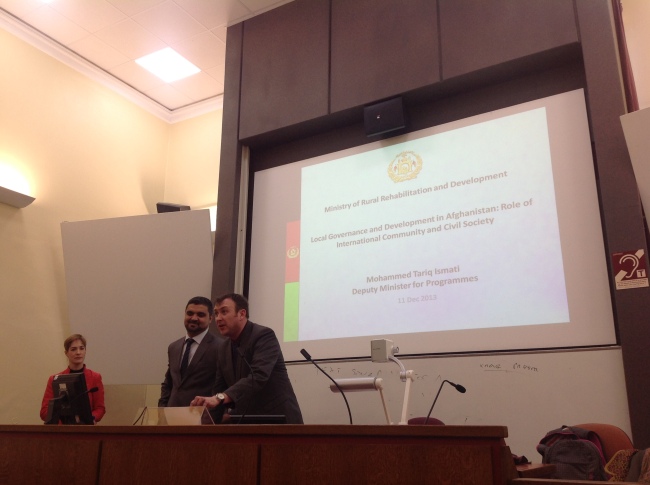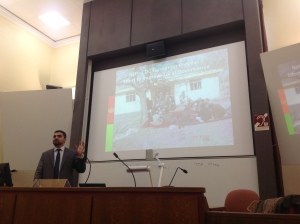On Wednesday December 11th the Politics and International Relations programme hosted the Afghan Deputy Minister for Programmes at the Ministry of Rural Rehabilitation and Development, Mr. Mohammed Tariq Ismati. The event was organised as part of the Global Governance module by Dr. Amelia Hadfield on the offer of CCCU graduate Dr. Ritu Mahendru, an advisor to the Minister.
In a passionate and detailed presentation Minister Ismati discussed how his Ministry is implementing development programmes at the grass-roots level of Afghan society as part of a long-term strategy to build the new Afghan state. Two areas were mentioned in particular; firstly, the need for decisions about what projects to support to be made at the lowest possible level in existing village governmental structures. This was vital he argued, as it ensures public support for projects that the people themselves have decided are most important to improving their quality of life. Secondly, he made a strong case for women’s empowerment through participation in the labour force and support of women led economic initiatives. Having control over money and economic enterprise was far more relevant to changing women’s lives for the better than aspirational law changes was a point emphasized by the Minister.
Reflecting on his experiences in government the Minister urged CCCU students to continuously innovate and search for the best possible solutions to problems that they face. A central problem he noted with regard to international aid efforts in Afghanistan was a one-size-fits-all development policy that ignored the history and diversity of Afghanistan.
It was a real privilege for the staff and students of the Politics and International Relations to hear such a positive and proactive presentation from a key practitioner in the development process in Afghanistan.
 Politics
Politics Anna Vanaga
Anna Vanaga 558
558




